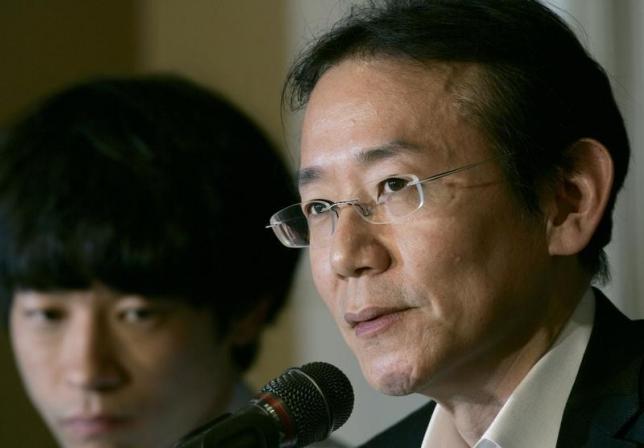'Lady Maiko,' or how to say 'the rain in Spain' in Japanese

TORONTO - Masayuki Suo, best known for his original Japanese version of the Hollywood hit "Shall We Dance?," has directed a new movie musical that might best be described as "My Fair Lady" in a kimono.
Suo's "Lady Maiko" tells the story of a simple country girl, Haruko, who travels to Japan's ancient capital Kyoto with the ambition of becoming a polished "maiko," or apprentice geisha, one of the most familiar yet mysterious figures in Japanese culture.
"I wanted to portray how young Japanese girls feel and live with the traditions of Japan," Suo said at the film's North American premiere during the recent Toronto Japanese Film Festival.
"Lady Maiko" will be shown again next month at the Japanese Canadian Cultural Centre in Toronto.
Haruko is unusual for a modern Japanese teenager. She dreams of learning the age-old but declining traditions of the maiko. But she soon finds out that her rustic speech stands in the way of her dream. To be an apprentice geisha, or "geiko," as they are called in Kyoto, she must speak the city's special dialect.
It is the same challenge faced by Eliza Doolittle, the Cockney flower girl in "My Fair Lady."
Haruko gets a lucky break when she catches the ear of a linguistics professor Kyono, who bets he can teach her to speak like a proper Kyoto lady in six months.
Suo said he hoped to capture the charm of the ancient capital along with its famous geiko and maiko traditions.
"I always find the people of Kyoto to be the prototype of the Japanese," he said. "I see Japanese culture in its polished form in Kyoto."
Suo came up with the idea for the movie 20 years ago but put it on hold while pursuing other projects, including "Shall We Dance?," his 1996 film about ballroom dancing that inspired a 2004 Hollywood version starring Richard Gere and Jennifer Lopez.
Suo eventually embarked on the movie when he discovered lead actress Mone Kamishiraishi, with her girl-next-door look and unforgettable voice.
Suo, speaking in Japanese, said it was inevitable but acceptable that foreign audiences would miss the nuances of language integral to "Lady Maiko."
"It's a reality that certain things aren't communicated," he said. "It's also important for viewers to understand there are things that they don't understand." - REUTERS







